A great performance from an actor will rivet us no matter what, but we are particularly drawn to a performance of an actor portraying a person who once existed or even currently lives. Although many would argue that the real challenge of an actor is to create a living, breathing portrait of a character from nothing but scratch, the general public (and voters of the Academy) tend to be captivated when a performer completely embodies a figure for whom we already have a point of comparison/reference.
Just recall last year's Oscar race, for example. Christian Bale's strong performance as Dicky Eklund in The Figher was viewed as one of the year's many great performances, but when director David O. Russell included a clip of the real Dicky during the closing moments and we could see for ourselves just how spot-on Bale was, it sealed the deal for the Welshman's first Oscar.
So needless to say, Leonardo DiCaprio's portrayal of J. Edgar Hoover in this weekend's J. Edgar has the attention of the public and the Academy. If he can nail it, he might march to his first Oscar as well. For now, let's take a look at the best portrayals of non-fictional characters in the last 10 years.

10. Salma Hayek as Frida Kahlo
Salma Hayek gave more than commitment to her role in Frida. She was impaled on a pole, slept with both men and women and gave up her leg ... okay, not really, but she did have fake sex with guys and gals. For those interested in the performance itself, Hayek brought a healthy balance of charm and wit to the surrealist painter Frida Kahlo. She was ahead of her time in terms of vision, yet admittedly young in other respects, which Hayek deftly navigates with as much grace as there was power in Kahlo's volatile personality and relationships. It only helps to have Alred Molina (who played her husband Diego Rivera) as a scene partner, but even on her own, Hayek is unafraid to let herself go, allowing the artist to take over all facets of her body — especially the eyebrow ... s.
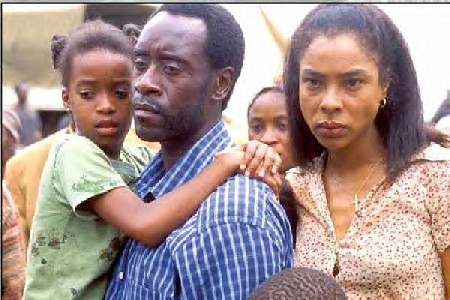
9. Don Cheadle as Paul Rusesabagina
In all honesty, most movies based on real-life people lean towards the
far more famous of our world history; it's just easier to get asses in seats
when the film is about a king or a singer. Hotel
Rwanda is different in that Paul Rusesabagina (Don Cheadle) was not
widely known prior to the film's release, but the Rwandan Genocide of
1994 is. Cheadle brings Rusesabagina to life as a hotel manager who
bears witness to the mass slaughter of one Rwandan tribe (his
own) over another (his wife's), taking in refugees from both sides in
an attempt to shield them from violence. The film screams "African
Schindler's List," but is not to be brushed aside, notably for Cheadle's
come-out-of-nowhere performance as a man who is nearly is shattered by the
fear and violence of war but rises as one of the few heroes to
walk out of the conflict that left a million bodies behind and bringing over
a thousand survivors with him. It's powerful, it's rousing and it gives
cause that a glimmer of hope hasn't gone out of the world just
yet.
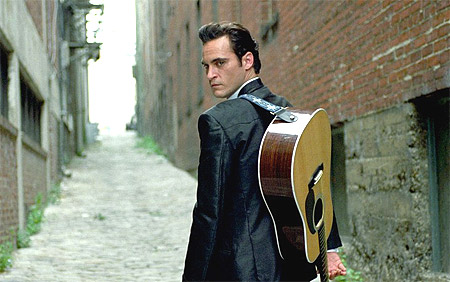
8. Joaquin Phoenix as Johnny Cash
If you want to talk about literal immersion, you have to talk about
Joaquin Phoenix’s turn as legendary singer Johnny Cash. Phoenix put the method in method acting as he literally
locked himself in a room with a guitar for a series of months while learning to sing in Cash’s low,
gravely tones (so suck it Jamie Foxx, with your pre-recorded Ray Charles
songs) and said he nearly became an alocholic himself trying to enter Cash's alcoholic psyche. Musicians are another tough area to tackle, especially given how much
their shortcomings pop up in print. Cash suffered from drug
addiction, alcoholism and a relationship with June Carter that raised eyebrows
while he was still married. Not to mention his Dad was a right ass****.
Through all the many downs, Phoenix is a fully realized image of the troubled
but powerful singer — so powerful he literally ripped a sink out of a wall.
That’s dedication, not to mention it was done in one take.

7. Cate Blanchett as Katharine Hepburn
You want to talk about glamour, you’ve gotta go to the 1930s/1940s, where
much of Martin Scorsese’s The Aviator takes
place. And while star Leonardo DiCaprio turns in one hell of a performance as
the OCD billionaire Howard Hughes, it was Cate Blanchett’s turn as real-life
actress Katharine Hepburn that caught the eye of many in and out of Hollywood.
Being an icon of both film and women, Hepburn was brought to life by
Blanchett’s sharp wit, rousing sophistication and remarkable warmth; a key
ingredient in what kept Hughes afloat from his obsessive tendencies. Like
Hepburn herself, Blanchett lit up the screen every time she appeared and
channeled the magic of Old Hollywood for a modern audience.
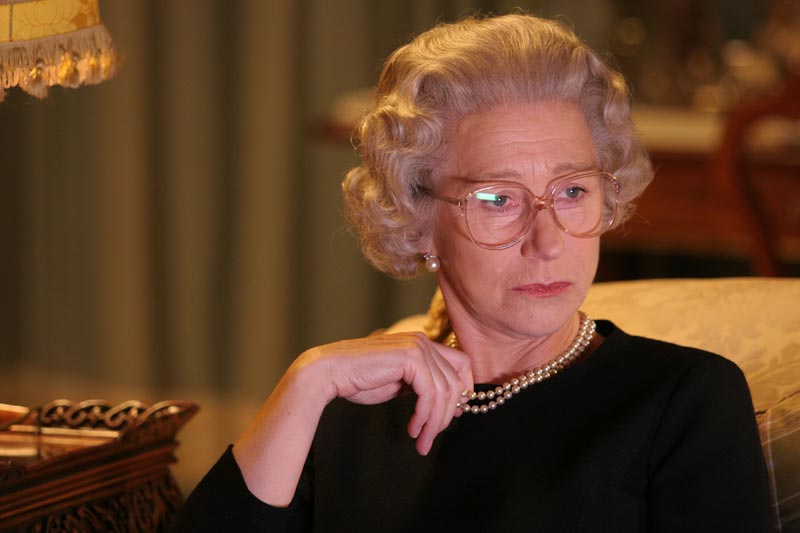
6. Helen Mirren as Queen Elizabeth II
Royals, particularly the British Royals, have never had a hard time
getting the attention of audiences. So many have come down the pipeline that
it’s near expected we’ll see one done on every … single … member. Out of the
numerous interpretations on the long-running monarchy, there is no question
that (the always lovely) Helen Mirren takes the prize — and she literally did in 2007. Mirren is a knock-out as the
current Queen of England, Elizabeth II. Her performance was not without risk
and in some respects Mirren had to breathe life into a figure who was still
breathing. Accurate or not (though she’s a dead ringer for the Queen’s physical
mannerisms), Mirren turns out a performance that is as layered as it is
immersing. She disappears as a Dame (in more ways than one) and lights up with
screen with grace, control and just a touch of sympathy for a monarch
struggling to endure her shifting country.

5. Sean Penn as Harvey Milk
To get an Oscar, the joke has always been you’ve either got to do a WWII film or go gay. In the case of Sean Penn’s turn as Harvey Milk — a pioneer of gay rights in the 1970s — the later worked out well in earning him his second win for Best Actor. Although it’s unfair to just chalk his win up as Oscar bait (though it really is), Penn breathes sincerity into Milk’s image: Less as a martyr and more as a man. In many ways, Penn’s Milk is portrayed as an everyday man with an extraordinary impact and while those performances/roles come and go, Penn is a standout of humor, charm and sincerity on all fronts.
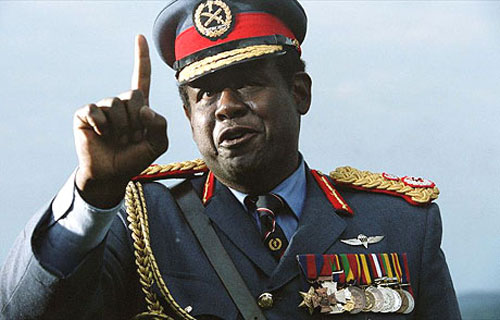
4. Forest Whitaker as Idi Amin
If The Queen leaves you with a
slightly warmer feeling to those in power, The
Last King of Scotland will scare the hell out of you. Forest Whitaker plays
Idi Amin, a Ugandan general who rose to power in 1971 by way of a military
coup. Although the movie’s central protagonist (played by James McAvoy) is
fictional, the acts committed by Amin and his followers are definitely not:
Slaughter, torture and all levels of corruption imaginable seep from Whitaker’s
performance. Yet where he has sheer fire in his performance there is also a
jovial guy, almost a boy lingering somewhere, lost in the bloodshed.
You never know when Whitaker will strike next or how, and even if the film is
less a direct retelling than others, it’s nonetheless empowered by Whitaker’s
near psychotic turn as a man trying to hang on through the only means he knows
how: violence.
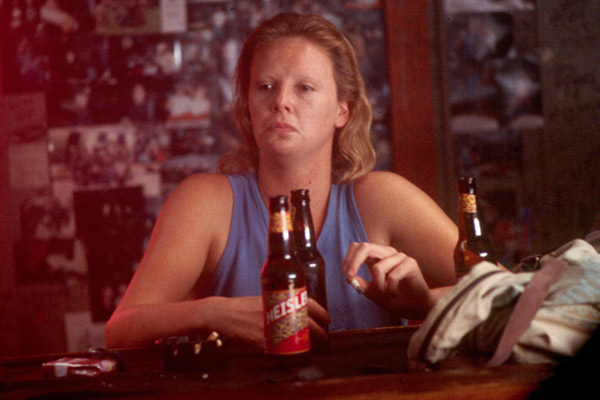
3. Charlize Theron as Aileen Wuornos
If
someone pointed to a picture of Charlize Theron in Monster and said
"that's Charlize Theron," they'd have likely laughed at you. Yet
holy hell, it's true. The often glamorous and gorgeous Theron typically keeps
your eyes on her, but in Monster it was for a completely different
reason while she played prostitute-turned-serial-killer Aileen Wuornos.
She really did look like a completely different person and it wasn't
just great makeup work that did it. Her performance is as cold and
dark as it is saddening and a touch sympathetic. At her killer's
core is the drive to provide a better life for herself and her lover Selby
(Christina Ricci, playing the biggest spoiled brat ever). She tries to go
straight, but only knows one means to do so: rob and kill, growing more violent
and unstable with each death (killing has that effect on some). There are a few references to killers of film history (Taxi Driver comes to
mind), but Theron's Wuornos is one of the most fully realized performances in
the last 10 years, made all the more engaging that her character's story
was once a living, breathing person — albeit a monster of sorts.
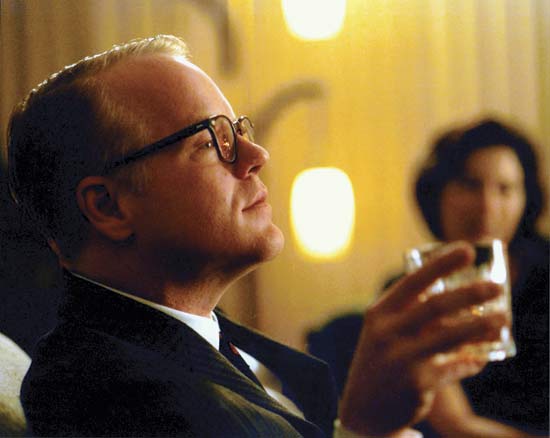
2. Philip Seymour Hoffman as Truman Capote
Writers are always fun to see onscreen, if only because it’s the last
place they are supposed to be. In the case of Capote, “fun” is not the word that comes to mind. Director Bennet
Miller and Phillip Seymour Hoffman give us a bleak, spiraling and overall powerful
take on the story of Truman Capote, real-life writer of Breakfast at Tiffany’s and In
Cold Blood. Although another Capote-based film, Infamous, was released a year later (with Toby Jones giving an
arguably more precise Capote interpretation), Hoffman nails every pitch of the
flamboyant writer. Deftly jumping from the social king of New York to a
stranger studying the brutal murders of a Kansas family, Hoffman’s performance
never feels forced or over-the-top. It’s more than an accurate impression here, it’s a dead-on revival of one man’s descent into obsession and the consequences
of getting what he wants.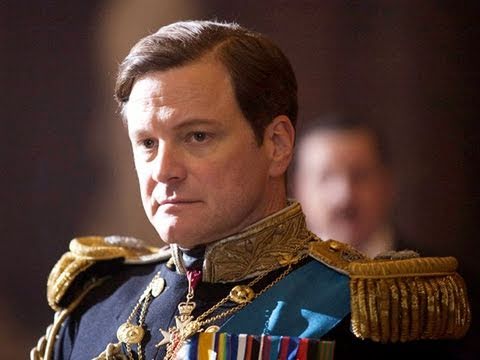
1. Colin Firth as King George VI
It’s those Royals again! Although it has to be said Colin Firth’s
performance as King George VI is not to be lumped in as “just another royal”
category. In fact, it might be the best one we’ve seen yet. Not only does Firth
need to impress as a reluctant king who inherited the throne after his
brother’s disgrace right before World War II (such bad timing), he has to do it
with the near-crippling stutter that the real George VI suffered from most of
his life. And rest-assured, Firth lives
his stutter in this movie, shedding light on the harsh effects such a condition
can have on an individual’s psyche while raising the already baffling stakes
for the man who would help lead Britain through World War II. Firth has always
been a game-day player for some time, but “Speech” is a high point in a career
riddled with them.